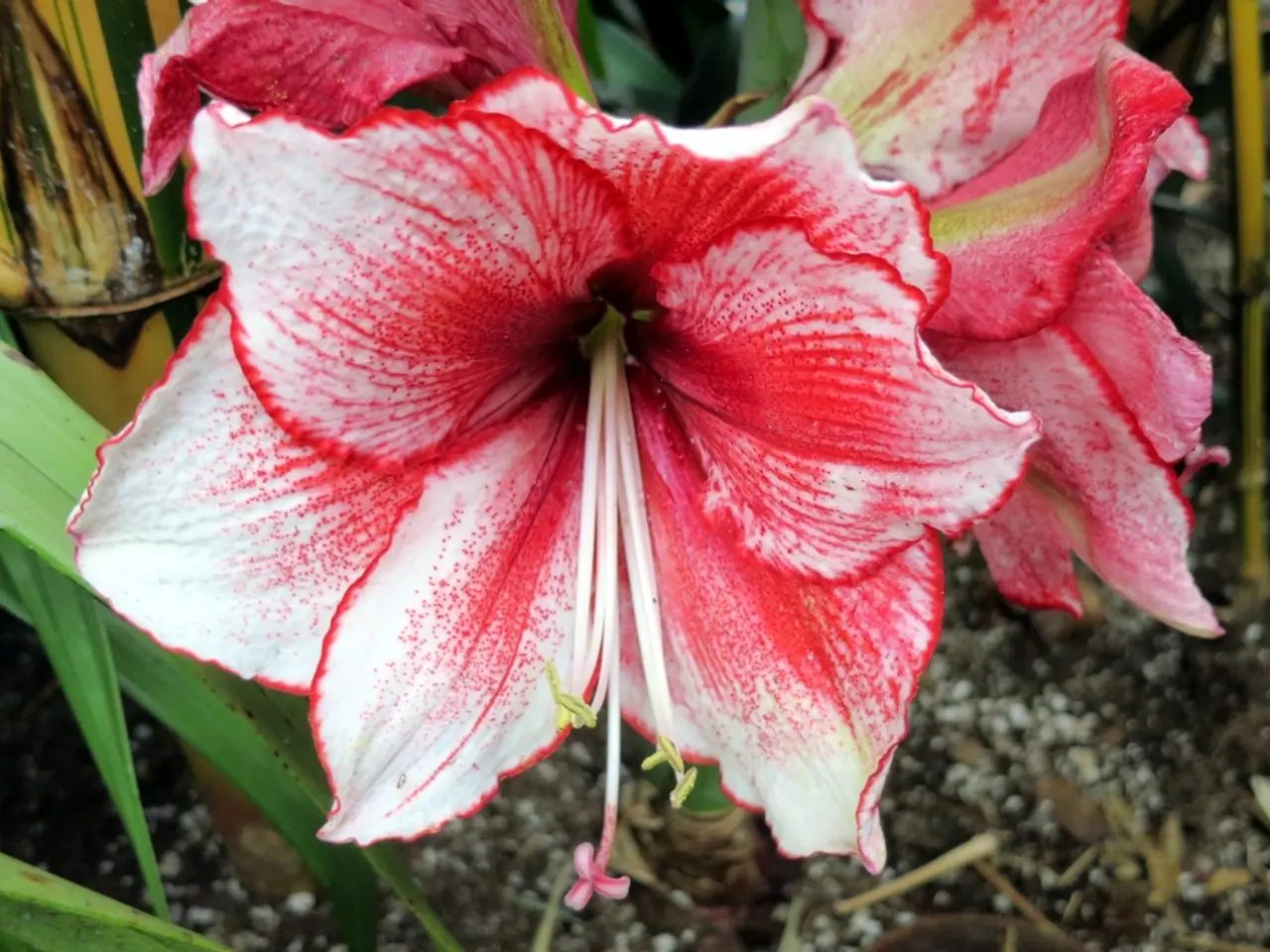Healthy gardens rely heavily on quality soil for their growth and vitality
A gardener's journey begins with the soil, the foundation for strong, healthy plants that yield abundant produce and beautiful blooms. Soil, in its various forms, plays a crucial role in supporting plant life. This article delves into the characteristics and benefits of clay, sandy, and loamy soils, and the amendments that can significantly improve their health and productivity.
Clay Soil
Composed of very fine particles, clay soil is dense and compact. It is nutrient-rich and excellent at retaining moisture, which helps plants during dry spells. However, it tends to have poor drainage, can become waterlogged in wet conditions, and is prone to compaction that inhibits root growth and aeration. With proper management, clay soil supports vigorous plant growth due to its nutrient content and moisture-holding capacity.
Sandy Soil
Made up of large, coarse particles, sandy soil drains quickly. It is low in nutrients and poor at retaining moisture, making it challenging for plants that need consistent water. Easy to work with, sandy soil requires regular addition of organic matter to improve moisture retention and nutrient availability.
Loamy Soil
A balanced mixture of sand, silt, and clay, loamy soil offers the best qualities of each. It retains moisture well but also drains excess water efficiently. Nutrient-rich and well-aerated, loamy soil is ideal for a wide variety of plants with healthy root function.
Soil Amendments to Improve Each Soil Type
Clay Soil Amendments:
- Gypsum breaks up compacted clay and improves drainage by altering soil structure.
- Lime helps bind soil particles, enhancing structure and drainage.
- Organic matter like compost or mulch loosens the soil, improves aeration, and increases microbial activity.
- Creating raised beds and ensuring proper water management also help alleviate drainage problems in clay soils.
Sandy Soil Amendments:
- Adding organic matter such as well-rotted animal manure significantly improves moisture retention and nutrient content.
- Mulching helps keep moisture in the soil and reduces erosion.
- Repeated addition of compost builds soil structure and enhances fertility over time.
Loamy Soil Amendments:
- Although loamy soil is naturally balanced, it benefits from the regular addition of organic matter to maintain nutrient levels and improve soil structure.
- Soil testing can guide specific nutrient amendments to tailor fertility to particular plants or conditions.
In summary, clay soil benefits from amendments that reduce compaction and improve drainage, sandy soil requires organic matter to enhance moisture and nutrient retention, and loamy soil is generally well-balanced but can be optimized with ongoing organic matter and nutrient management. These practices help create healthier, more vigorous plants across different soil types.
For container gardening, choose a soil mix that has the right balance of drainage, moisture retention, and nutrients. For specific plants like succulents, cacti, or orchids, adjust the soil mix to suit their needs. Worm castings, a natural source of nutrients and beneficial microorganisms, can improve plant health and soil structure.
The importance of healthy soil cannot be overstated in gardening. Potted plants need extra care and nutrients as they are not connected to the natural soil ecosystem. Peat moss improves soil structure, water retention, and acidity levels, great for plants that prefer slightly acidic soils. Manure provides essential nutrients like nitrogen, phosphorus, and potassium to plants.
In conclusion, understanding soil types and their characteristics is the first step towards creating a thriving garden. By incorporating the right soil amendments, gardeners can ensure their plants receive the optimal conditions for growth and flourishing.
- Beyond the soil, our gardening journey extends to indoor spaces, where pots filled with the right soil mix nurture succulents, cacti, and orchids.
- In an indoor setting, it's crucial to select a soil mix that caters to the specific needs of each plant, promoting healthy growth.
- With the increasing popularity of home-and-garden lifestyles, more people are embracing container gardening on balconies, terraces, or even inside their homes.
- The nursery stands as a haven for gardeners, offering a variety of plants, soil types, and gardening tools to cater to every gardening need.
- Fruit gardeners rejoice in the selection of veggies and fruits available, from tomatoes to strawberries, all requiring well-drained soil with sufficient nutrients.
- Loamy soil, the ideal soil type for most plants, offers the perfect balance of nutrients and drainage for a thriving outdoor garden.
- Alternatively, sandy soil, while less nutrient-rich, can be transformed into a fertile growing medium with the addition of organic matter for improved moisture retention.
- A little expert care goes a long way in keeping plants healthy – from regular watering to the careful application of fertilizers and pest control – ensuring they grow to their full potential.
- Amendments like gypsum, lime, compost, and peat moss prove essential in improving soil health and fostering abundant produce and beautiful blooms, both indoors and out.




